EXECUTIVE LEADERSHIP
Brian Anderson, MD
Chief Executive Officer
Dr. Brian Anderson is the Chief Executive Officer of the Coalition for Health AI (CHAI), a non-profit coalition he co-founded in 2021. CHAI is focused on developing a set of consensus-driven guidelines and best practices for Responsible AI in Health, as well as supporting the ability to independently test and validate AI for safety and effectiveness.
Prior to leading CHAI, Dr. Anderson was the Chief Digital Health Physician at MITRE, where he led research and development efforts across major strategic initiatives in digital health alongside industry partners and the U. S. Government. He was responsible for leading much of MITRE’s work during the COVID-19 pandemic, working closely with the White House COVID Task Force, as well as Operation Warp Speed. He also led MITRE’s largest R&D effort in Oncology, focusing on the initial development of mCODE and the use of AI in more efficient and inclusive clinical trial design.
Dr. Anderson is an internationally recognized author and expert in digital health, and is regularly engaged as a speaker on digital health innovation, health standards development, clinical decision support systems, and interoperability.
Prior to MITRE, Anderson led the Informatics and Network Medicine Division at athenahealth. He has also served on several national, and international, health information technology committees in partnership with the Office of the National Coordinator (ONC), the National Institutes of Health (NIH) and the Organization for Economic Cooperation and Development (OECD).
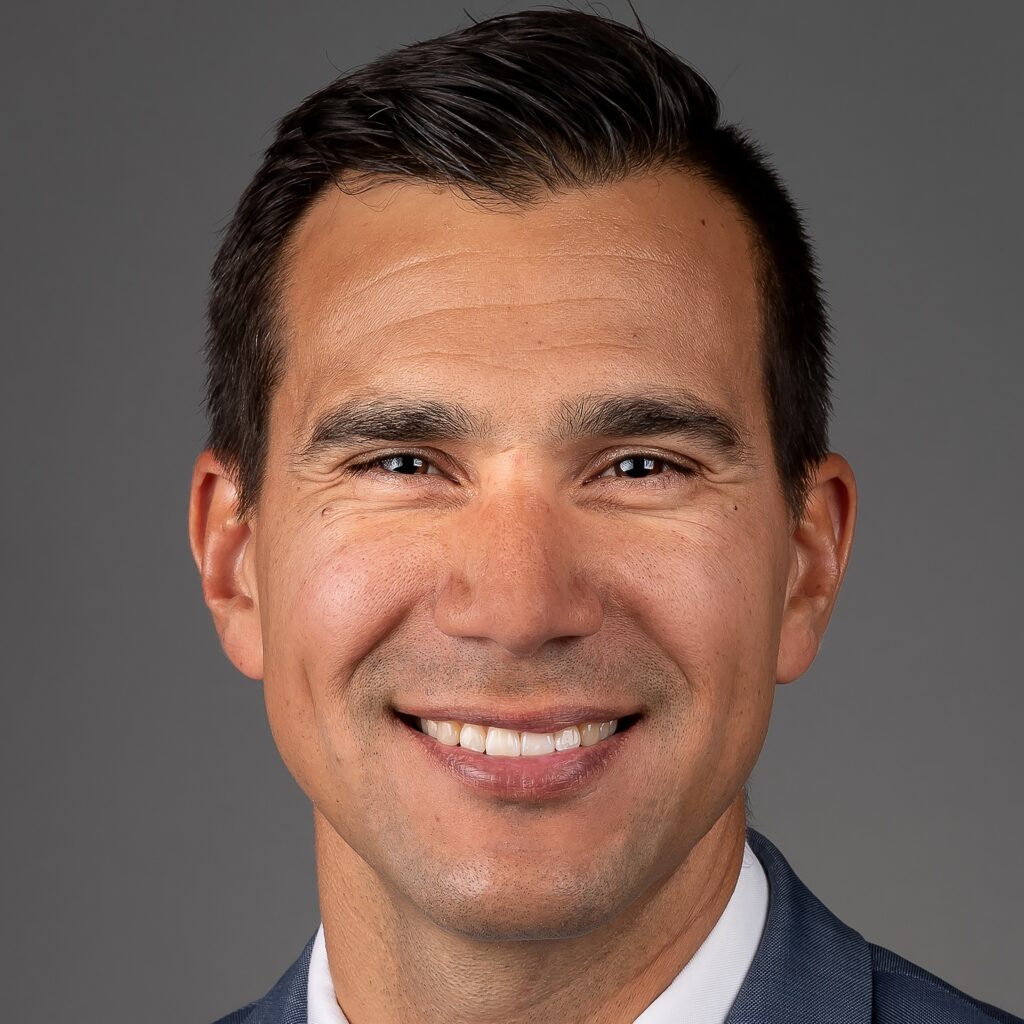

Brenton W. Hill, JD, MHA
Head of Operations and General Counsel
Brenton W. Hill is the Head of Operations and General Counsel at the Coalition for Health AI (CHAI), healthcare’s leading nonprofit thought partner organization dedicated to providing guidelines for the responsible use of AI in healthcare. Trained as an attorney and a healthcare administrator, Brenton approaches his work from a risk-informed and operationally feasible perspective which helps CHAI move with agility to accomplish its mission and best serve its members. Prior to his role at CHAI, Brenton served as the Regulatory Strategy and Compliance Manager for Mayo Clinic Platform assisting Platform in identifying its approach to emerging AI regulation and risk mitigation strategies. As part of his role, he served as a member of Mayo Clinic’s SaMD Review Board, which provides governance for AI models being implemented at Mayo Clinic. Additionally, he served as Mayo Clinic’s first legal-trained Administrative Fellow. After his first year in the fellowship program doing traditional hospital operations, Brenton pivoted and spent the next year exclusively focused on digital health regulation and AI implementation where he gained a passion for responsible AI governance and adoption.
He is passionate about connecting the entire health sector to CHAI’s work and providing a collaborative community that can help define how AI can help solve some of the health sector’s most pressing issues. Brenton completed his undergraduate studies at Arizona State University and completed his JD and MHA at the University of Kentucky.
Lucy Orr-Ewing
Chief of Staff and Head of Policy
Lucy Orr-Ewing joins CHAI from Stanford Medicine as a Harkness Fellow in the Clinical Excellence Research Center. At Stanford, her research focused on the current landscape for testing and evaluation of Generative AI in healthcare, on best practice LLM deployment, and on patient perceptions of AI in healthcare.
Prior, she was Chief of Staff for Technology Policy for the National Health Service (NHS) in England the NHS, during which she convened more than 200 portfolios of work into one strategy, the Digital Health and Care Plan, and delivered the NHS’ first HealthTech Summit. She was also Head of Strategy for the Federated Data Platform Programme, the UK’s largest investment into its data infrastructure to connect all operational health data for the UK.
Orr-Ewing is an active advocate of AI and digital health and its potential to alleviate financial and capacity pressures, and to deliver affordable, equitable access to care. In the UK she was an evaluator for Digital Health.London’s startup accelerator program, an advisor to early-stage HealthTech ventures, a convener of a Women in HealthTech community, and a member of multiple government advisory groups. She is particularly interested in improving collaboration between the public and private sector and is committed to enacting policy and behavioral change for innovation to have its greatest impact.
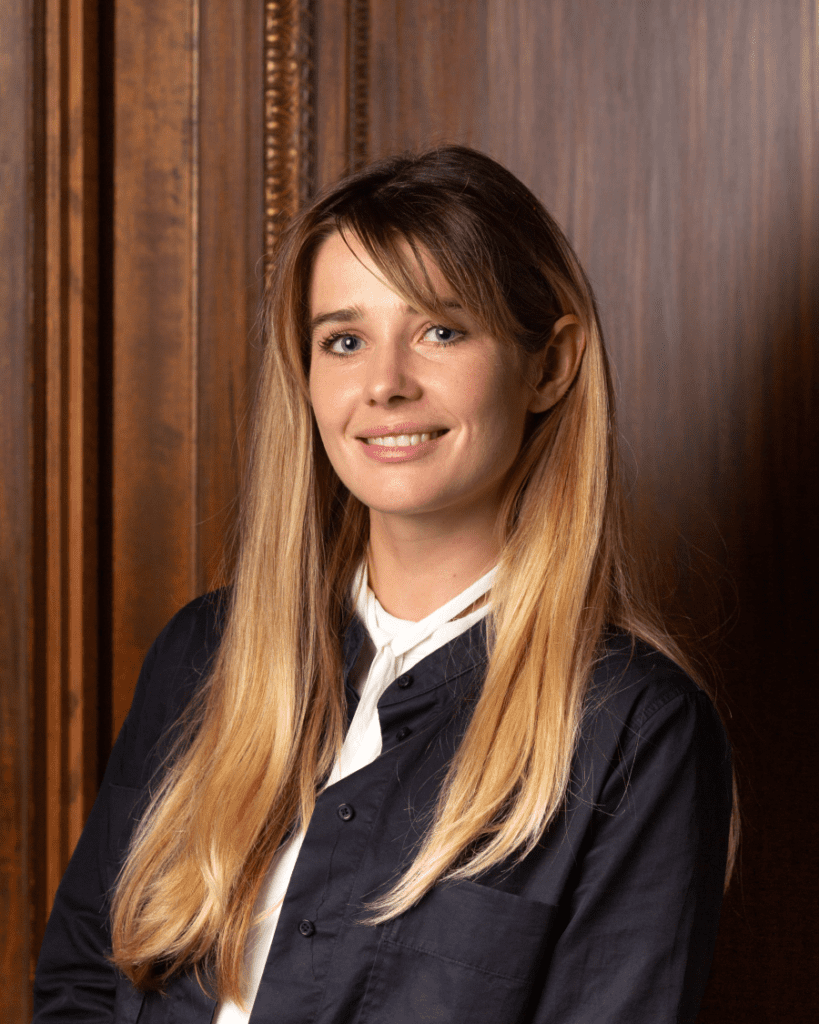
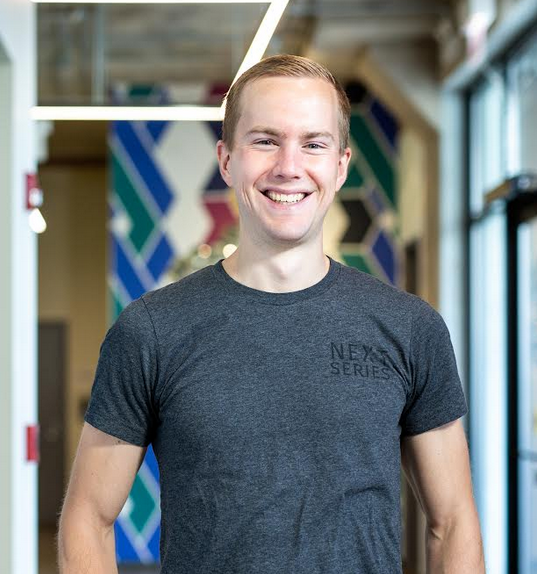
Tom Kirby
Chief Financial Officer
A husband, father, operator, and founder – each to varying degrees of success.
Nicoleta J Economou, PhD
Scientific Director
Nicoleta J Economou, PhD, is the Scientific Director for the Coalition for Health AI (CHAI). Dr. Economou serves as the founding director of the Duke Algorithm-Based Clinical Decision Support (ABCDS) Oversight leading the governance, evaluation, and monitoring of AI and other algorithmic software at Duke, and leads all Duke Health AI initiatives relevant to the evaluation and governance of health AI technologies.
Previously, Dr. Economou led projects supporting a learning health system at Duke working alongside faculty and health system leadership to bring together people, processes, technologies, and data streams required to drive evidence-based continuous improvement and innovation in health care delivery and operations.
Before joining Duke, she worked in the life-science and pharmaceutical industry, where she managed clinical analytics portfolios to drive data-informed decisions for drug development with key focus on clinical data review, clinical safety review, and clinical operations. Additionally, she developed, validated and deployed risk models and helped design and define metrics for monitoring clinical trials using analytics software. Dr. Economou did her postdoctoral training at the UNC Eshelman School of Pharmacy and received her PhD in Biochemistry from Drexel University College of Medicine.
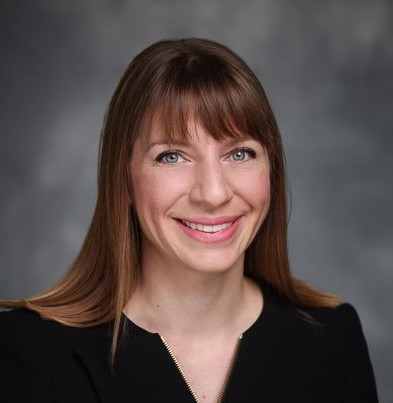
Board of Directors

John Halamka, MD
Board Chair
John D. Halamka, M.D., M.S., is president of the Mayo Clinic Platform, a digital initiative that brings together solution developers, data partners and healthcare service providers to transform healthcare. Mayo Clinic Platform tools and solutions reached 45 million people in 2023. Trained in emergency medicine and medical informatics, Dr. Halamka has been developing and implementing healthcare information strategy and policy for more than 40 years. Prior to his appointment at Mayo Clinic, he was chief information officer at Beth Israel Deaconess Medical Center, where he served governments, academia and industry throughout the world. As the International Healthcare Innovation Professor at Harvard Medical School, Dr. Halamka helped the George W. Bush administration, the Obama administration and governments worldwide plan their healthcare information strategies.
Dr. Halamka completed his undergraduate studies at Stanford University, earned his medical degree at the University of California, San Francisco, and pursued graduate work in bioengineering at the University of California, Berkeley. He completed his residency at Harbor — UCLA Medical Center in the Department of Emergency Medicine. He continues to practice emergency medicine and is Professor of Emergency Medicine and the Michael D. Brennan, M.D., President’s Strategic Initiative Professor at Mayo Clinic College of Medicine and Science.
Dr. Halamka has written 15 books and hundreds of articles. He was elected to the National Academy of Medicine in 2020. He and his wife run Unity Farm Sanctuary in Sherborn, Massachusetts, dedicated to the lifetime care of ill, disabled, senior, orphaned and surrendered farm animals.
Michael J. Pencina, PhD, is Duke Health’s chief data scientist and serves as vice dean for data science, director of Duke AI Health, and professor of biostatistics and bioinformatics at the Duke University School of Medicine. His work bridges the fields of data science, health care, and AI, and builds upon Duke’s national leadership in trustworthy AI.
Dr. Pencina co-founded and co-chairs Duke Health’s Algorithm-Based Clinical Decision Support (ABCDS) Oversight Committee and serves as co-director of Duke’s Collaborative to Advance Clinical Health Equity (CACHE). He spearheads Duke’s role as a founding partner of the Coalition for Health AI (CHAI) whose mission is to increase the trustworthiness of AI by developing guidelines to drive high-quality health care through the adoption of credible, fair, and transparent health AI systems.
Dr. Pencina is an internationally recognized authority in the evaluation of AI tools and algorithms. Guideline groups rely on his work to advance best practices for the application of algorithms in clinical medicine. With over 100,000 citations, he has been recognized by Thomson Reuters/Clarivate Analytics among the world’s most “highly cited researchers” in clinical medicine and social sciences.

Michael Pencina, Ph.D.
Secretary and Treasurer

Suchi Saria, Ph.D.
Suchi Saria, PhD is the founder and president of Bayesian Health, a clinical AI platform company that augments care teams by bringing together state of the AI/ML technology combined with responsible AI best practices to dramatically improve quality while saving clinicians’ time. She is also an AI Professor at Johns Hopkins where she holds the John C. Malone endowed chair and is the Director of AI and health lab.
Dr. Saria’s work in AI over the last two decades has led to foundational advances in the technology, best practices around translation, and AI policy. She has written several seminal papers in AI/ML around issues of learning robust models, detecting drifts, monitoring and learning from messy real-world datasets. Her applied research has built on these technical advances to develop novel next generation diagnostic and treatment planning tools that use AI/ML to individualize care. Her work has been funded by leading organizations including the NSF, DARPA, FDA, NIH and CDC and she regularly serves as a scientific advisor to leading Fortune 500 companies.
Dr. Saria completed her PhD in AI at Stanford, her BSc in Physics, Computer Science and Statistics at Mount Holyoke. She’s a Sloan Research Fellow, named by IEEE to “AI’s 10 to Watch”. Modern Healthcare’s Top 25 Innovators, World Technology Forum’ Technology Pioneer, and her work was recognized as one of TIME’s Best Inventions in 2023. She is on the editorial board of the Journal of Machine Learning Research and serves on the National Academy of Medicine AI Code of Conduct.
Morgan Cheatham is a Vice President with Bessemer Venture Partners where he leads healthcare and life sciences investments from seed to growth stages. He focuses across the value chain spanning software, therapeutics, services, and diagnostics, to improve patient care from bench to bedside and specializes in applications of computation in biomedicine.
Select investments in his portfolio include Abridge, Hinge Health, Headspace Health (fka Ginger), Subtle Medical, Turquoise Health, Productboard, Plenful, Groups Recover Together, Ansible Health, and FOLX Health, where he serves on the board and previously served as Interim CEO. He was awarded Forbes 30U30 for Venture Capital and the National Venture Capital Association Rising Star Award in 2023.
Morgan is pursuing medical training at The Warren Alpert Medical School of Brown University with a research focus in bioinformatics. His research collaborations include the Shah Lab at the Stanford Institute for Human-Centered AI, where he is investigating the clinical utility and validation of LLMs, and more recently, the Zitnik Lab at the Harvard Department of Biomedical Informatics, where he is interested in investigating questions pertaining to multi-modal phenotyping and therapeutic response prediction. He is also a member of the New England Journal of Medicine Artificial Intelligence Editorial Team. He earned his bachelor of science from Brown University.

Morgan Cheatham
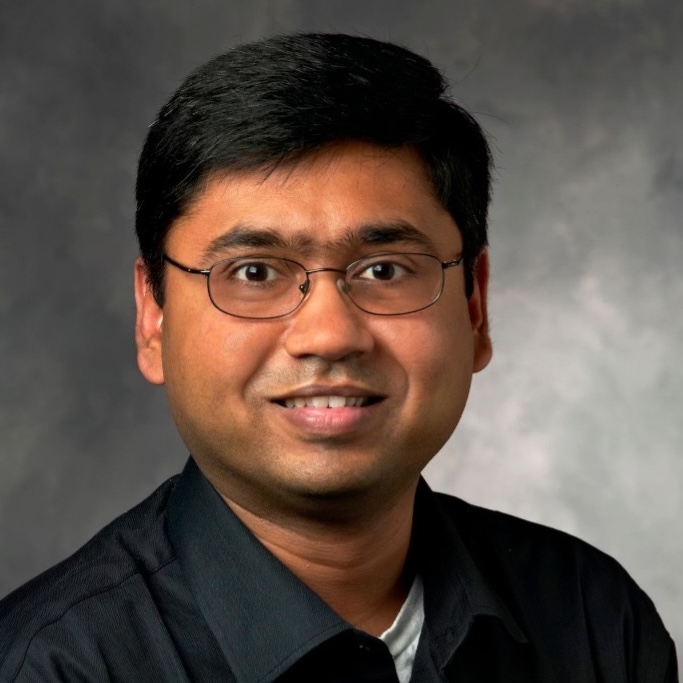
Nigam Shah, MBBS, Ph.D.
Dr. Nigam Shah is Professor of Medicine at Stanford University, and Chief Data Scientist for Stanford Health Care. His research group analyzes multiple types of health data (EHR, Claims, Wearables, Weblogs, and Patient blogs), to answer clinical questions, generate insights, and build predictive models for the learning health system. At Stanford Healthcare, he leads artificial intelligence and data science efforts for advancing the scientific understanding of disease, improving the practice of clinical medicine and orchestrating the delivery of health care.
Dr. Shah is an inventor on eight patents and patent applications, has authored over 200 scientific publications and has co-founded three companies. Dr. Shah was elected into the American College of Medical Informatics (ACMI) in 2015 and was inducted into the American Society for Clinical Investigation (ASCI) in 2016. He holds an MBBS from Baroda Medical College, India, a PhD from Penn State University and completed postdoctoral training at Stanford University.
Jennifer C. Goldsack founded and serves as the CEO of the Digital Medicine Society (DiMe), a 501(c)(3) non-profit organization dedicated to advancing digital medicine to optimize human health. Jennifer’s research focuses on applied approaches to the safe, effective, and equitable use of digital technologies to improve health, healthcare, and health research. She is a member of the Roundtable on Genomics and Precision Health at the National Academies of Science, Engineering and Medicine and serves on the World Economic Forum Digital Health Action Collaborative.
Previously, Jennifer spent several years at the Clinical Trials Transformation Initiative (CTTI), a public-private partnership co-founded by Duke University and the FDA. There, she led development and implementation of several projects within CTTI’s Digital Program and was the operational co-lead on the first randomized clinical trial using FDA’s Sentinel System.
Jennifer spent five years working in research at the Hospital of the University of Pennsylvania, first in Outcomes Research in the Department of Surgery and later in the Department of Medicine. More recently, she helped launch the Value Institute, a pragmatic research and innovation center embedded in a large academic medical center in Delaware.
Jennifer earned her master’s degree in chemistry from the University of Oxford, England, her masters in the history and sociology of medicine from the University of Pennsylvania, and her MBA from the George Washington University. Jennifer is a retired athlete, formerly a Pan American Games Champion, Olympian, and World Championship silver medalist.

Jennifer Goldsack, MChem, MA, MBA, OLY

Eric Horvitz, Ph.D., MD.
Eric Horvitz is Chief Scientific Officer at Microsoft. He leads strategic initiatives at the confluence of the sciences, technology, and society, including frontier efforts in AI and the biosciences. Dr. Horvitz is known for his research on AI theory and practice, including long-term contributions to biomedical informatics and the development and fielding of AI systems in medicine. He has been named a fellow of the American College of Medical Informatics (ACMI), the Association of Computing Machinery (ACM), the American Association for the Advancement of Science (AAAS), and the Association for the Advancement of AI (AAAI) and has been elected to the National Academy of Engineering and the American Academy of Arts and Sciences. He has been inducted to the SIGCHI Academy for contributions to principles and applications of human-AI interaction. He received the Feigenbaum Prize and the Allen Newell Prize for his fundamental contributions to the science and practice of AI. He serves on the President’s Council of Advisors on Science and Technology (PCAST) and has been an advisor to multiple national agencies including his service on the Advisory Board of the National Science Foundation and the Board of Regents of the National Library of Medicine. He earned MD and PhD degrees from Stanford University. More information and publications are available at https://erichorvitz.com.


